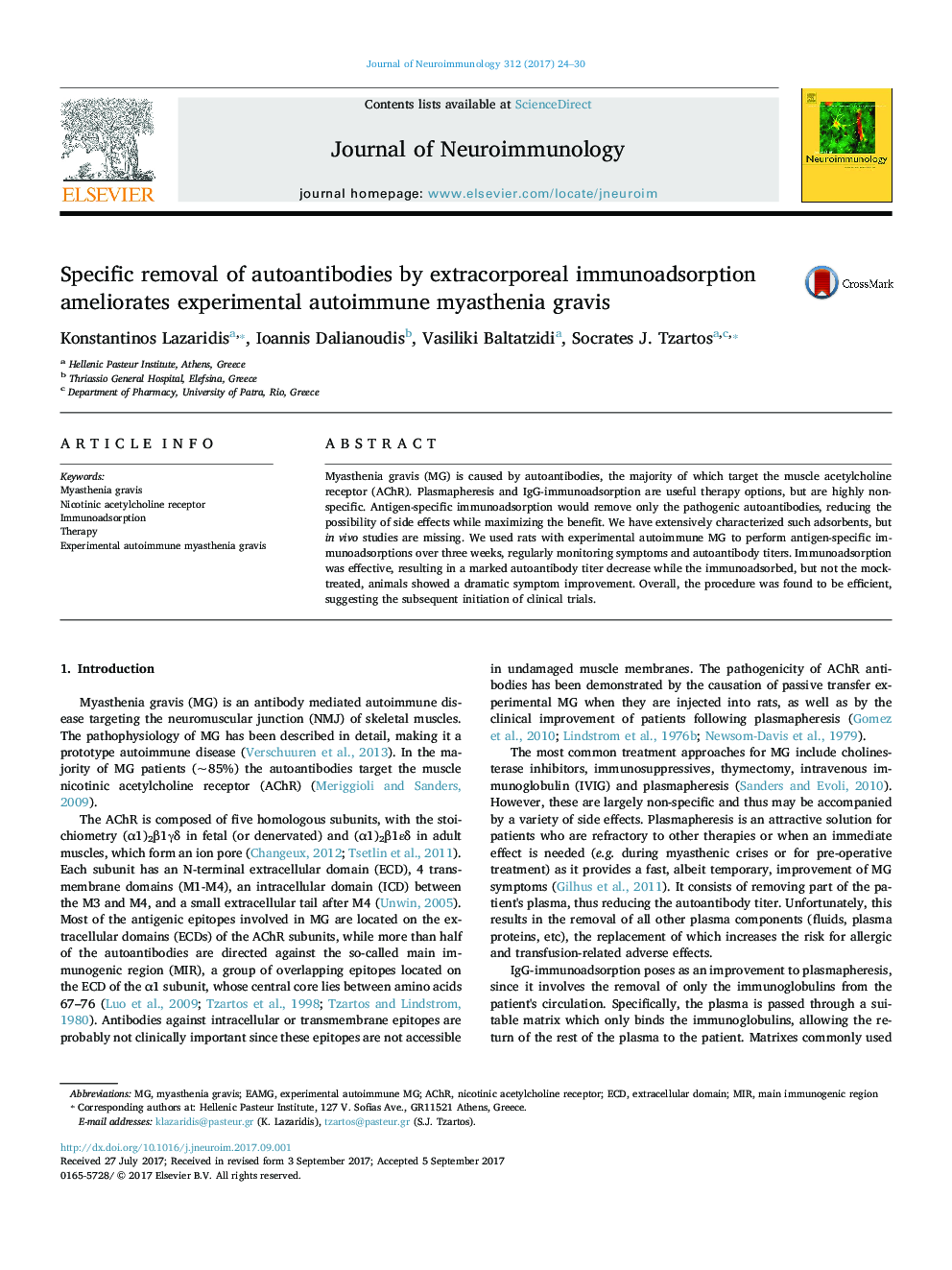| Article ID | Journal | Published Year | Pages | File Type |
|---|---|---|---|---|
| 5630123 | Journal of Neuroimmunology | 2017 | 7 Pages |
â¢We evaluated the therapeutic efficiency of ex vivo antigen-specific immunoadsorption in EAMG rats.â¢Immunoadsorptions performed repeatedly over three weeks resulted in a marked decrease of antibody titers.â¢The treated rats (but none of the controls) showed a dramatic improvement of their clinical symptoms.â¢The antibody titer changes after each session and throughout treatment were analyzed in detail.
Myasthenia gravis (MG) is caused by autoantibodies, the majority of which target the muscle acetylcholine receptor (AChR). Plasmapheresis and IgG-immunoadsorption are useful therapy options, but are highly non-specific. Antigen-specific immunoadsorption would remove only the pathogenic autoantibodies, reducing the possibility of side effects while maximizing the benefit. We have extensively characterized such adsorbents, but in vivo studies are missing. We used rats with experimental autoimmune MG to perform antigen-specific immunoadsorptions over three weeks, regularly monitoring symptoms and autoantibody titers. Immunoadsorption was effective, resulting in a marked autoantibody titer decrease while the immunoadsorbed, but not the mock-treated, animals showed a dramatic symptom improvement. Overall, the procedure was found to be efficient, suggesting the subsequent initiation of clinical trials.
Graphical abstractDownload high-res image (75KB)Download full-size image
